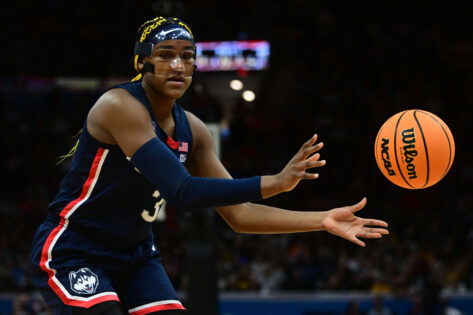The 2026 FIFA World Cup, to be jointly hosted by the USA, Canada, and Mexico, is poised to be a watershed moment. From the early looks of it, the next year’s iteration might be the most technologically advanced tournament in history. Artificial Intelligence (AI) will lead this transformation, redefining the way fans have traditionally engaged and interacted with the sport. AI will not enhance the game on the field, but revolutionize the spectator experience off it.
AI-Powered Personalization: Crafting Unique Fan Journeys
Personalization is of paramount importance to fans. Just like how brands are leaning heavily on delivering a tailor-made experience to customers, FIFA is also banking on AI to tailor a custom experience for fans. How does the apex body of global soccer do that? Three ways: analyzing user behavior, examining their preferences, and tracking the engagement patterns. Using AI, FIFA plans to deliver content that resonates on an individual level.
Customized Content Delivery: AI algorithms can analyze the viewing habits of fans to better recommend content that aligns with individual interests. Real-Time Updates: Fans can get live stats, performance metrics, and tactical analysis in real-time, enhancing how experience of the match. Interactive Platforms: AI-generated apps enable fans to take part in betting, quizzes, and other gamified experiences, fostering a deeper connection.A 2024 Survey by IBM found that 63% of sports fans rely on analytics while watching a tournament. Whereas 50% of them opined that leveraging AI will further enhance the experience.
It’s official. The 2026 #WorldCup will be hosted by USA-Mexico-Canada. pic.twitter.com/XvAN2Y4dEv
— SOCCER.COM (@soccerdotcom) June 13, 2018
But AI won’t just be used for personalization. It will be used for creating a more immersive experience, blurring the lines between the virtual and the real world.
Immersive Experiences: Bridging the Gap Between Virtual and Reality
Imagine this: you are sitting in a stadium equipped with AR technology. You see player stats, heat maps, and replays on your device, all in real-time. Can you fathom how deep and immersive the experience will be?
Or, consider this. You had to cancel going to the tournament at the eleventh hour. If the stadium is VR-equipped, you will get a 360-degree view of the stadium, soaking in the fun of being part of a bigger community while sitting on your couch.
On the other hand, AI-enabled venues can better manage crowd flow and optimize concession stands according to foot traffic. It ensures a seamless experience for in-person fans and, at the same time, minimizes security risks. It will also allow the organizers to generate maximum revenue and take data-driven decisions in the future.
As a matter of fact, we have already seen the impact AI can have on broadcasting. Noticed how Amazon Prime Video’s ‘Prime Vision with Next Gen Stats’ correctly predicted the moves players will make at the Rams Vs. 49ers game?
“It doesn’t matter how many years of football experience you have, we can’t do what AI can do,” Prime Video senior coordinating producer Alex Strand told AP. This next-gen analysis is changing the way fans watch a match. It can very much do the same for Soccer as well.
And it’s not just fans who will benefit from a fusion of AI and Soccer. Think of the opportunities it will open up for brands. From targeted advertising to tiered subscription models, the options are endless. Moreover, brands can actually analyze the purchase decisions at concession stands or merch shops. That will allow them to understand fan preferences better and optimize revenue streams.
As the 2026 Soccer World Cup beckons, the transformative power of AI in redefining fan experience is undeniable. From acing personalization to building immersive environments, AI can be the architect of a radically changed world inside the stadium. It will also make the sport more accessible than ever before.
So, embracing AI is not an option anymore. It has become a necessity for stakeholders. However, they should also exercise caution as data privacy issue arises. As Neil Sahota, the United Nations Artificial Intelligence Advisor and Professor at UC Irvine, correctly noted in a Forbes column that without balancing ethical concerns with technological advancements, a sustainable roadmap for AI in sports is not feasible.
The post The 2026 World Cup Will Blur the Line Between Stadium & Screen appeared first on EssentiallySports.


 4 hours ago
3
4 hours ago
3 










 Bengali (Bangladesh) ·
Bengali (Bangladesh) ·  English (United States) ·
English (United States) ·